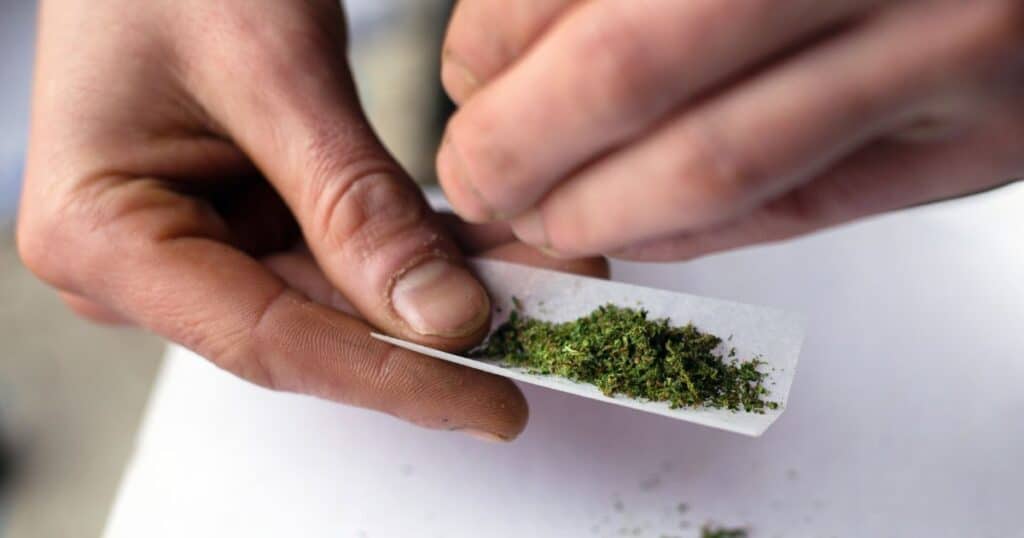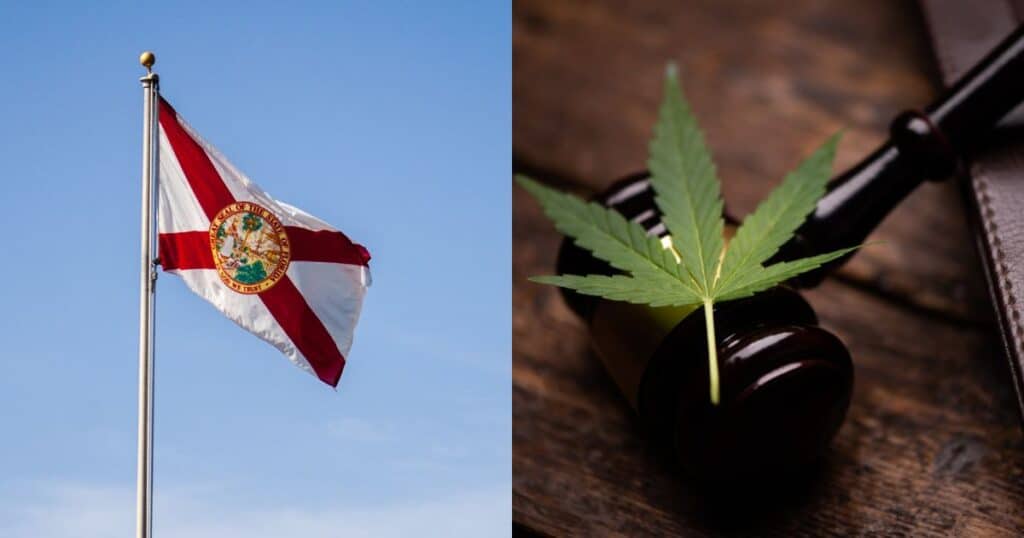Florida is poised to take a major step in its cannabis policy, as the state’s Supreme Court has ruled that the proposed recreational marijuana amendment, known as Amendment 3, can be placed on the November 2024 ballot. This landmark decision, with implications for millions of Floridians, signals a significant potential shift in how the Sunshine State may approach adult cannabis use.
Breaking News: Court gives the green light! Our mission to empower adults to safely consume cannabis takes a leap forward as the ruling favors letting voters decide. Let's make our voices heard! #YesOn3 pic.twitter.com/5Sqn9VOxRz
— Smart & Safe Florida (@SmartandSafeFl) April 1, 2024
The Journey to the November Ballot
The road to the November ballot was hotly contested, with Florida Attorney General Ashley Moody challenging Amendment 3’s inclusion due to its language, its still federally illegal status and its potential monopolistic benefits to the state’s largest medical marijuana player, Trulieve. Despite the legal wrangling, the amendment stood up to scrutiny and was approved for the ballot, where it awaits the affirmative votes of 60% of Floridians to become law.
This ruling is particularly important as it reiterates the right of citizens to weigh in on the recreational cannabis debate, affirming the significance of the ballot initiative process. For the millions of voting-age Florida residents, this upcoming ballot presents an opportunity to make their voices heard on a matter of significant social, economic, and medical importance.
The Smart and Safe Florida Campaign’s Proposition
The Smart and Safe Florida campaign is at the forefront of Amendment 3, aiming to overhaul the existing cannabis policy landscape within the state significantly. This campaign underscores a move towards granting adults aged 21 and over the autonomy to possess, purchase, or utilize marijuana products and accessories for non-medical, personal consumption. This encompasses a variety of consumption methods, whether by smoking, ingestion, or other means, embodying a progressive approach to adult use of cannabis.
A distinct aspect of this campaign is its provision for Medical Marijuana Treatment Centers (MMTCs) and other state-licensed entities. These facilities will have the latitude to acquire, cultivate, process, manufacture, sell, and distribute marijuana products and accessories.
The campaign places a cap on personal possession, limiting individuals to no more than 3 ounces of marijuana. Additionally, there is a provision that no more than five grams may be in the form of concentrate. It would go into effect in six months if Florida voters approve it.
The Financial Backing of Trulieve
The support for Amendment 3 has not been an under-the-radar effort. Trulieve, the state’s largest medical marijuana company, has been a formidable proponent of this amendment, investing heavily in its pursuit. With over $40 million reportedly contributed to its campaign, Trulieve’s advocacy underscores the significant market opportunity it perceives in a potential recreational marijuana market.
Trulieve’s sizeable financial backing, however, has not gone unopposed. Attorney General Moody and others have raised concerns about the company’s outsized influence in this decision, questioning the amendment’s fairness and equitability. Nonetheless, the court’s ruling has paved the way for voters to determine the future of Florida’s marijuana landscape.

It is pivotal to note the limitations imposed by Florida’s constitutionally mandated single-subject requirement, which has resulted in the recreational marijuana bill, Amendment 3, lacking several crucial components. Notably absent from the bill are provisions for home cultivation of cannabis by individuals.
Likewise, the bill does not include any social equity provisions aimed at addressing past injustices related to cannabis prohibition or ensuring that the benefits of legalization are equitably distributed among those historically impacted by cannabis prohibition. Another significant omission is the lack of any provisions for the expungement of criminal records for activities that would be legalized under the amendment, such as possession of small amounts of cannabis.
Furthermore, the amendment only allows already licensed Medical Marijuana Treatment Centers (MMTCs) to transition into the adult-use market. This approach has raised concerns among some about the potential for creating or exacerbating monopolistic dynamics within the industry. Critics argue that without mechanisms to ensure a more equitable entry into the market for new players, the existing large MMTCs, such as Trulieve, could dominate the recreational cannabis market, limiting competition and consumer choice.
The upcoming vote on recreational marijuana has drawn diverse reactions from different quarters of the state’s political spectrum. Supporters advocate the potential for increased revenue, individual freedom, and a more progressive stance on drug policy.
Critics, including Republican Governor Ron DeSantis, have expressed reservations about the measure, citing issues such as odor, public usage restrictions, and the implied federal-law contradictions that may ensue.
“I’ve gone to some of these cities that have had this everywhere, it smells, there’s all these things,” DeSantis mentioned during a press briefing in early March. “I don’t want to … walk in front of shops and have this. I don’t want every hotel to really smell.”
Will Florida Amendment 3 Receive the Necessary Support To Pass?
The crux of the matter ultimately falls to whether Amendment 3 will garner the requisite 60% vote needed for passage into law. In this regard, preliminary indicators seem promising. A poll conducted by the University of North Florida’s Public Opinion Research Lab shed light on the sentiments of Floridians toward the proposed adult-use legalization bill. Impressively, almost 70% of the respondents expressed support for the legislation, suggesting a strong leaning towards a more progressive stance on cannabis within the state.
Although it’s important to note that this poll represented a smaller sample size compared to the entire voting population of Florida, it nonetheless provides a significant glimpse into the prevailing public opinion. With such a substantial fraction of the populace seemingly in favor of the amendment, optimism amongst supporters is understandably high.
“Unlike previous surveys when we simply asked if folks support or oppose legalization of recreational marijuana, this time we gave respondents the specifics of this proposed amendment,” PORL faculty director and political science professor Dr. Michael Binder said. “Yet again, it looks like it has a good chance of passing, if the measure makes it through the courts”
Powered By EmbedPress
With the Florida Supreme Court’s ruling, the fate of recreational marijuana use in Florida now rests in the hands of its voters. The importance of informed decision-making cannot be overstated, as the implications of this ballot initiative will resonate well into the future.
For those both for and against the measure, the months leading to the November vote will be a critical period to engage in public discourse, understand the issues at stake, and cast ballots that reflect their beliefs and values.
The cannabis community, along with a diverse array of stakeholders, will be closely monitoring the trajectory of Amendment 3. Whether it signifies a new chapter in Florida’s social policy or ends up on the list of not-quite-there-yet attempts, one thing is certain: the conversation around marijuana in the Sunshine State will continue to evolve, and with it, the potential for legislative change and social impact.
The ballot is set, the stakes are high—now, it’s up to Florida’s electorate to decide the state’s marijuana future.


















